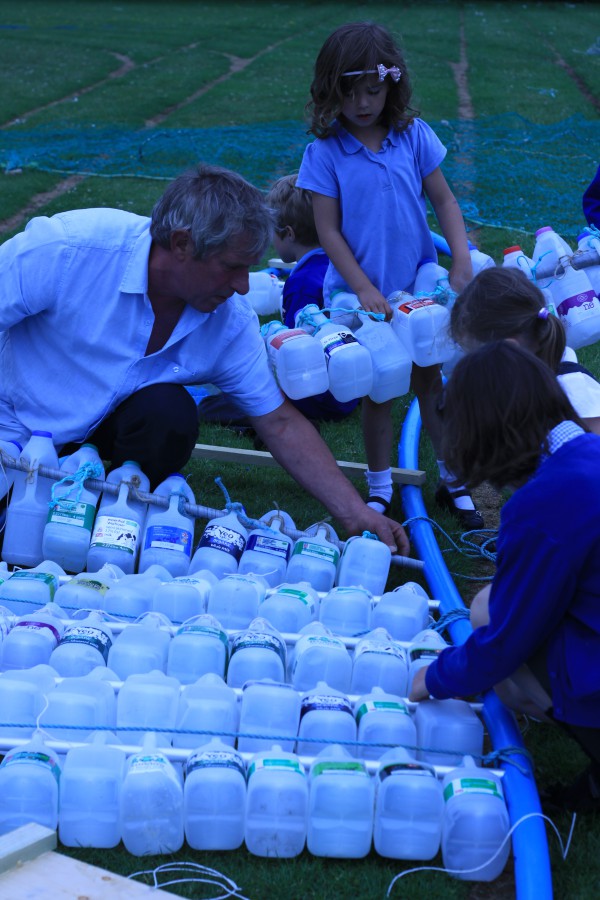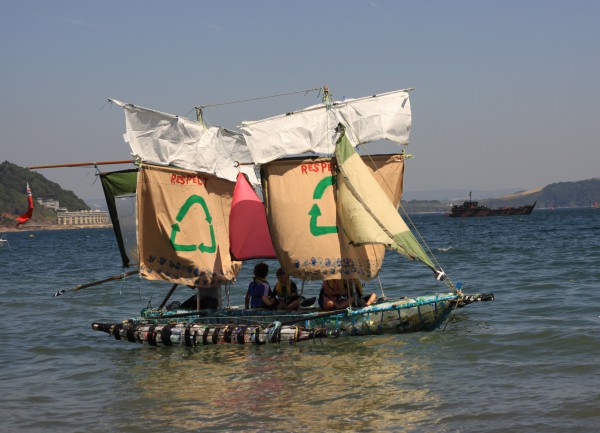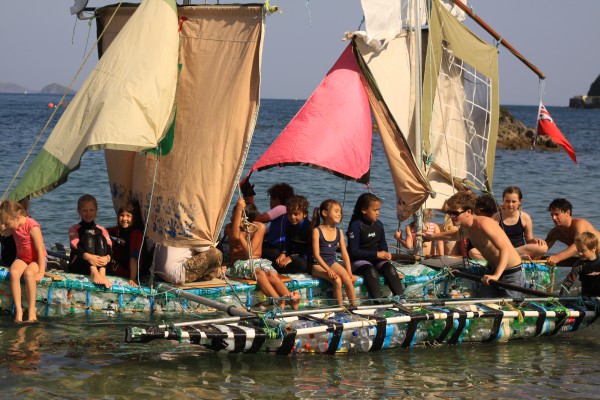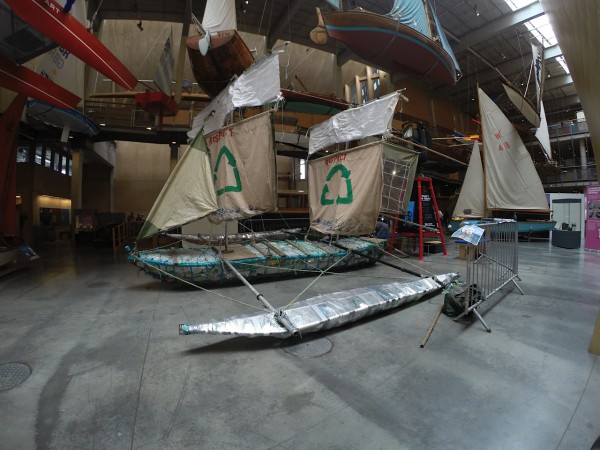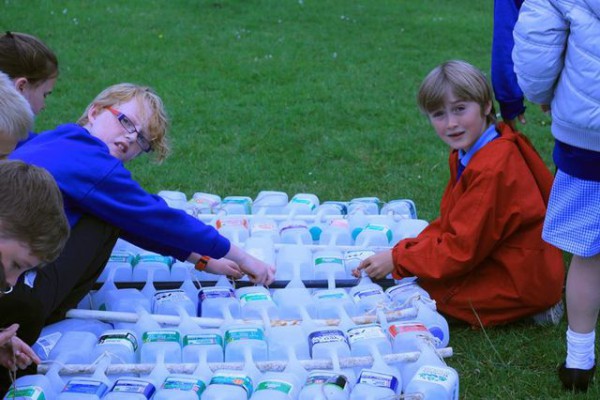Bottle boat
One of our most exciting projects saw us team up with primary school Fourlanesend and local boat builder Andy Fox to build and launch a sailing boat made from hundreds of plastic bottles, as part of our work with the children to get them thinking more about plastic and what happens to it when we throw it away.
Andy Fox previously built the famous Plastiki, which sailed across the Pacific in 2010. Made from recycled plastic and 12,500 reclaimed bottles, it sailed over 8,000 miles from San Francisco to Australia to raise awareness about the Great Pacific Garbage Patch, a vast and growing area of ‘plastic soup’ estimated to contain six times more plastic waste than plankton.
The children of Fourlanesend named their six-metre triamaran Respect, after one of their school values, as well as respect for the environment. It was made from around 750 bottles, which the children brought in from home over just a few weeks, as well as other recycled materials such as waste agricultural sacks and tents abandoned after the local Maker Festival.
The boat was launched on Cawsand beach in July 2013 with a lucky six children who got the first ride, accompanied by the local gig club safety boat. By later in the day there were over 20 excited children at a time on board the super buoyant boat in shallow water. As Andy pointed out: “A one litre bottle will support a kilo of weight!”
In 2014, Respect was sailed several times again, and took part in the Mt Edgcumbe Smugglers Weekend. It spent the summer on show in the main entrance hall of the National Maritime Museum in Falmouth, with an interactive display that received over 12,000 hits.
After the end of its show at the museum, Respect went back ‘home’ to Fourlanesend School, where it now lives on the school’s field for the children to play on.
We hope this project has helped to get people thinking more about plastic, waste and how we use and dispose of resources.
At least 15 million disposable plastic bottles are thrown away in the UK every single day, most after having been used only for a few minutes. They will take hundreds of years or more to break down and, since no known natural process can digest them, will probably never fully disappear from the environment.
While recycling bottles is better than throwing plastic away, it still only delays the inevitable. Bottles can only be recycled a few times before the quality deteriorates to a point at which the plastic has to be recycled into lower grade items such as fleece, bins or benches, which will almost certainly not be recycled at the end of their own lifetimes.
Andy Fox would like to see closed loop processes used in the boat building and surfboard industries, in which end-of-life recycling is still not a requirement as it is in the automotive and aviation industries.
He wants the Respect project to highlight the fact that boats (and many other of our daily objects) could easily be made from recycled plastic – and fully recycled themselves at the end of their own lifetimes, removing the need for the constant and environmentally-costly production of new materials.
He said: “People think that natural substances, like wood and jute, are the most environmentally-friendly products you can use in boat-building, but actually, when you take into account factors like the transportation of these products, pesticide use, useful lifetime, anti-fouling, etc. you find that – as long as it is used correctly and 100% recycled – the greenest substance is actually plastic produced in our own country.”

